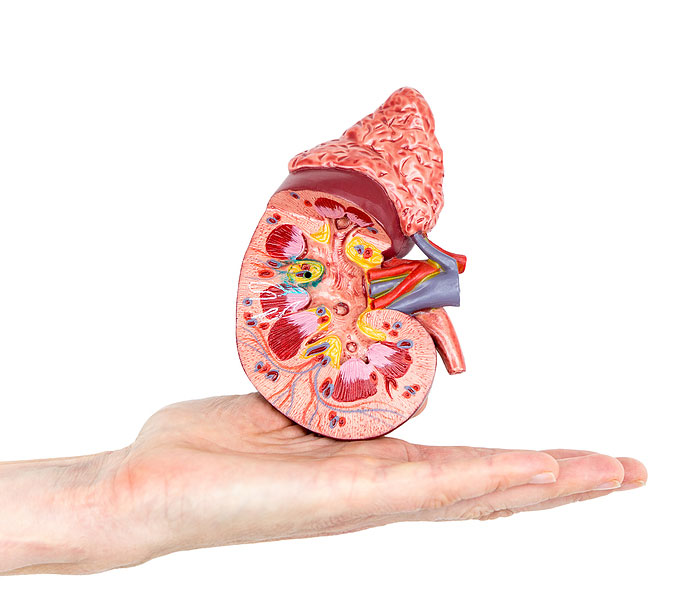Get Care
Acute Kidney Failure / Injury
What is Acute Kidney Failure: Acute (sudden) kidney failure is the sudden loss of the ability of the kidneys to remove waste and concentrate urine without losing electrolytes.
Causes:
- Acute Tubular Necrosis (ATN)
- Autoimmune kidney disease, including:
- Acute Nephritic Syndrome
- Interstitial Neprhitis
- Decreased blood flow due to very low blood pressure, which can result from:
- Burns
- Dehydration
- Hemorrhage
- Injury
- Septic Shock
- Serious Illness
- Surgery
- Disorders that cause clotting within the kidney’s blood vessels:
- Hemolytic-uremic syndrome
- Idiopathic thrombocytopenic thrombotic purpura (ITTP)
- Malignant hypertension
- Transfusion reaction
- Scleroderma
- Infections that directly injure the kidney:
- Acute pyelonephritis
- Septicemia
- Pregnancy complications, including:
- Placenta abruptio
- Placenta previa
- Urinary tract obstruction
1.5M
Total number of Acute Kidney Failure/injuries in 2014
315%
Increase in hospitalizations with acute kidney injury from 2000 - 2014
40%
Diabetes was an associated comorbidity in Kidney Failure
Prognosis
Acute kidney failure is potentially life-threatening and may require intensive treatment. However, the kidneys usually start working again within several weeks to months after the underlying cause has been treated.
In some cases, chronic renal failure or end-stage renal disease may develop. Death is most common when kidney failure is caused by surgery, trauma, or severe infection in someone with heart disease, lung disease, or recent stroke. Old age, infection, loss of blood from the intestinal tract, and progression of kidney failure also increase the risk of death.

Treatments
Once the cause is found, the goal of treatment is to restore kidney function and prevent fluid and waste from building up in the body while the kidneys heal. You will have to stay overnight in the hospital for treatment.
The amount of liquid you eat (such as soup) or drink will be limited to the amount of urine you can produce. You will be told what you may and may not eat to reduce the build-up of toxins normally handled by the kidneys. Your diet may need to be high in carbohydrates and low in protein, salt, and potassium.
You may need antibiotics to treat or prevent infection. Diuretics ("water pills") may be used to help the kidneys lose fluid.
Calcium, glucose/insulin, or potassium will be given through a vein to help avoid dangerous increases in blood potassium levels.
Dialysis may be needed, and can make you feel better. It is not always necessary, but it can save your life if your potassium levels are dangerously high. Dialysis will also be used if your mental status changes, you stop urinating, develop pericarditis, retain too much fluid, or cannot eliminate nitrogen waste products from your body.
The amount of liquid you eat (such as soup) or drink will be limited to the amount of urine you can produce. You will be told what you may and may not eat to reduce the build-up of toxins normally handled by the kidneys. Your diet may need to be high in carbohydrates and low in protein, salt, and potassium.
You may need antibiotics to treat or prevent infection. Diuretics ("water pills") may be used to help the kidneys lose fluid.
Calcium, glucose/insulin, or potassium will be given through a vein to help avoid dangerous increases in blood potassium levels.
Dialysis may be needed, and can make you feel better. It is not always necessary, but it can save your life if your potassium levels are dangerously high. Dialysis will also be used if your mental status changes, you stop urinating, develop pericarditis, retain too much fluid, or cannot eliminate nitrogen waste products from your body.
To learn more about Kidney Failure / Injury, please visit the Mayo Clinic Website at
Acute kidney failure – Symptoms and causes – Mayo Clinic
